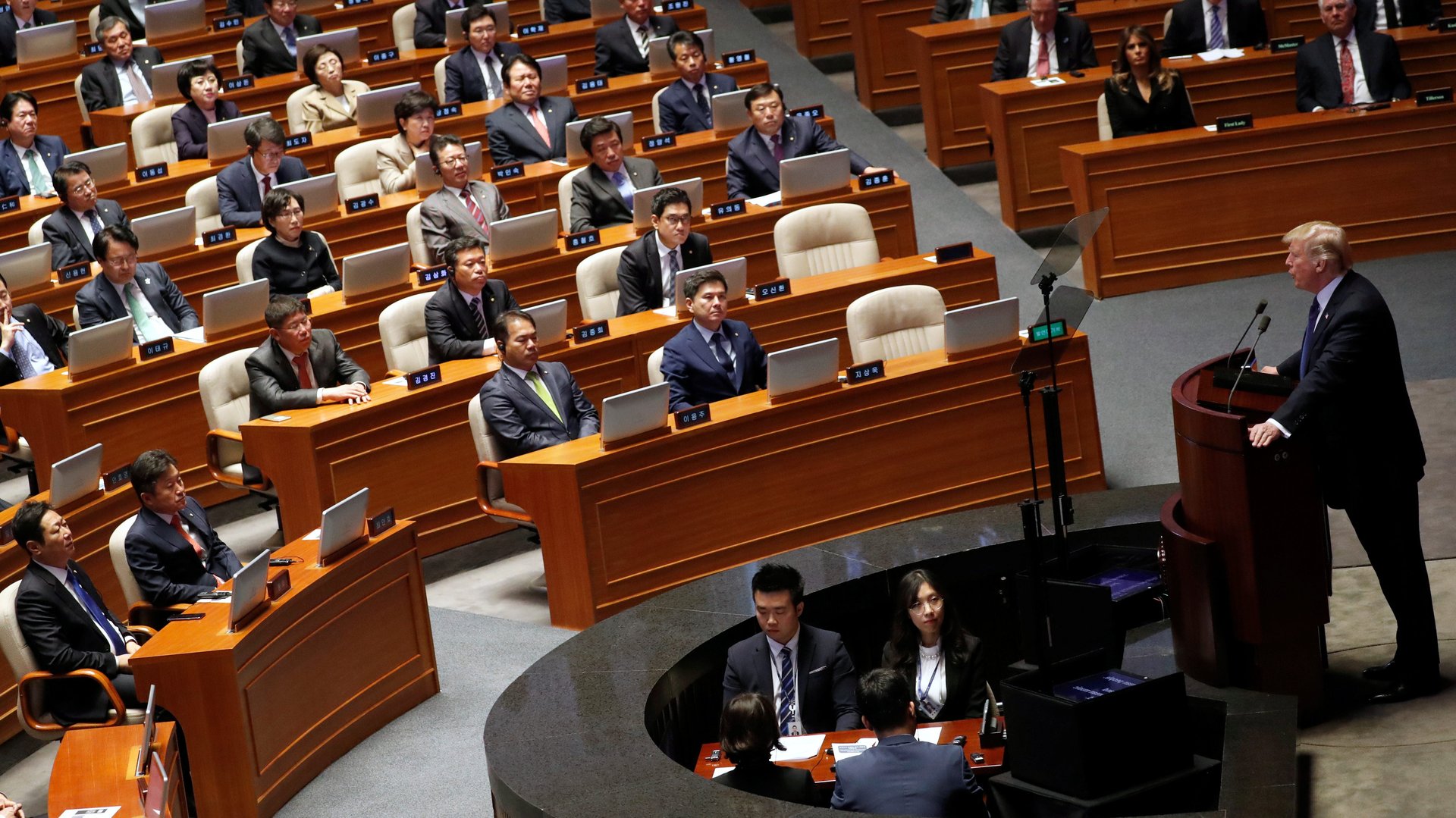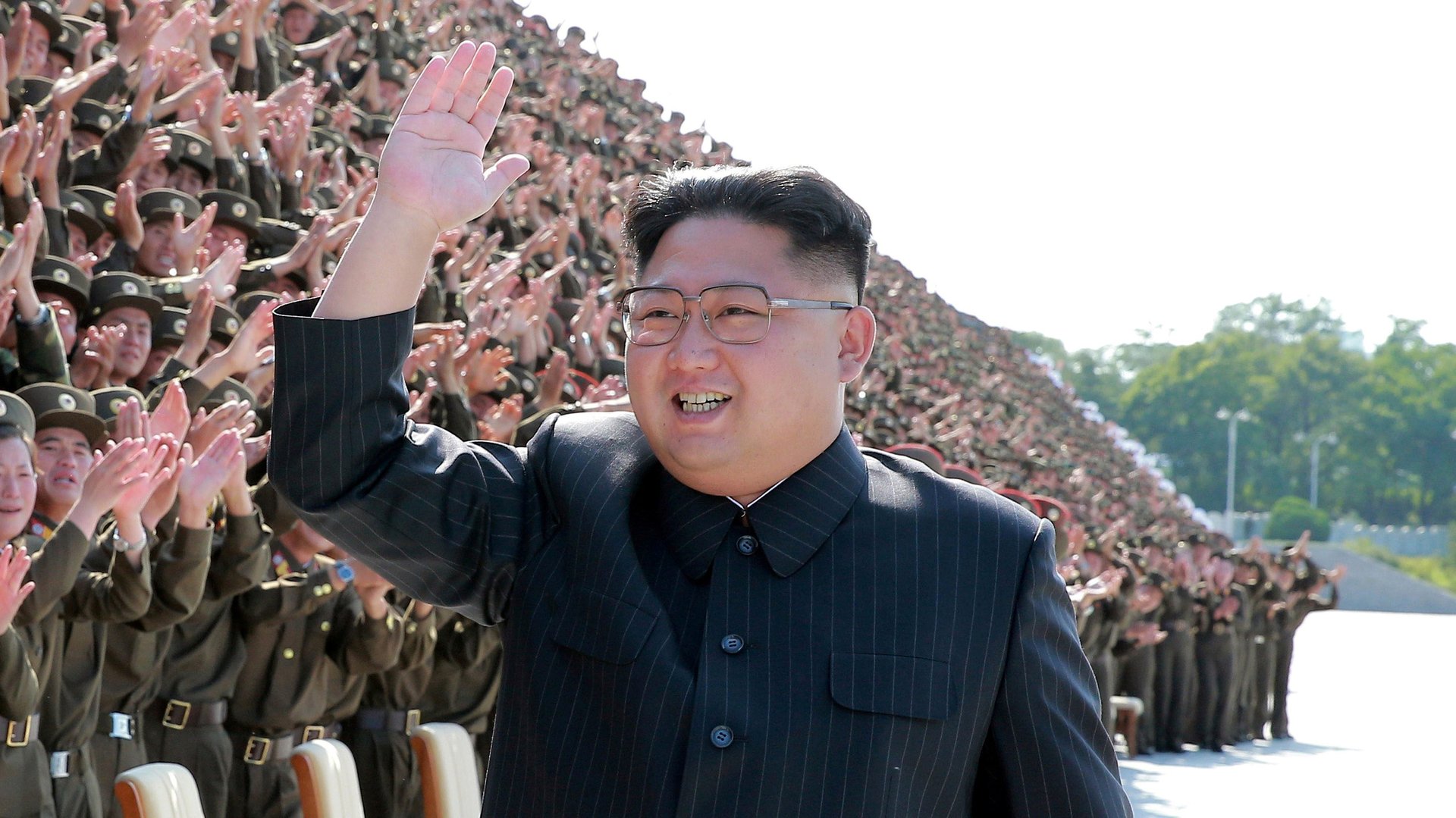Trump offered a “much better future” to a man who’s worshipped like a god in North Korea
In a speech delivered by US president Donald Trump to South Korean lawmakers today (Nov. 8) in Seoul, he correctly noted that the threat from North Korea is growing.


In a speech delivered by US president Donald Trump to South Korean lawmakers today (Nov. 8) in Seoul, he correctly noted that the threat from North Korea is growing.
“It is our responsibility and our duty to confront this danger together—because the longer we wait, the greater the danger grows, and the fewer the options become,” he said, following a botched attempt to visit the Demilitarized Zone dividing the two Koreas.
Indeed, North Korea is developing increasingly sophisticated nuclear weapons and ballistic missiles, posing a potential threat to not just the region, but also the US mainland.
Trump also warned Pyongyang that “this a very different administration than the United States has had in the past.”
But in the end, he’s basically doing what past administrations have done: calling upon North Korea to come to the negotiating table for denuclearization talks. Seeming to talk directly to North Korean leader Kim Jong-un, Trump said:
North Korea is not the paradise your grandfather envisioned. It is a hell that no person deserves. Yet, despite every crime you have committed against God and man, you are ready to offer, and we will do that—we will offer a path to a much better future. It begins with an end to the aggression of your regime, a stop to your development of ballistic missiles, and complete, verifiable, and total denuclearization.
The problem, of course, is that while that “much better future” is desperately needed by the average North Korean, it doesn’t apply to Kim. It’s hard to see what could possibly persuade Kim to give up his revered status in North Korea, where children are taught to view him, along with his late father and grandfather, almost as deities. What tops that for Kim?
Last month US lawmaker Ron DeSantis noted of Kim on CNBC’s Squawk Box: “This is a plump 31-year-old kid. If he were born somewhere else, and not to that family, he could be playing video games and eating Cheetos in some basement somewhere.”
Instead, Kim sits atop a country of about 25 million people and can reasonably expect to retain his position until his final years, long after Trump has receded into history.

Thus, Kim sees little reason to give up his nuclear weapons, seeing them instead as the best way to ensure he stays in power. He has considered the fates of two other strongmen once nukes were out of the equation, as reflected in an editorial published by state-run news agency KCNA in January:
History proves that powerful nuclear deterrence serves as the strongest treasured sword for frustrating outsiders’ aggression… The Saddam Hussein regime in Iraq and the [Muammar] Gaddafi regime in Libya could not escape the fate of destruction after being deprived of their foundations for nuclear development and giving up nuclear programs of their own accord.
Given his status in North Korea and the lessons he’s drawn from history, it’s difficult to imagine Kim giving up nuclear weapons, whatever the threats from Trump or the misery of the North Korean people.